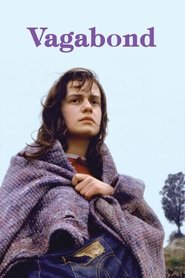Just as Joyce attempted to describe contemporary consciousness by reworking the Homeric foundation of modern culture, so does Varda model her simple tale-—of a woman’s place in today’s complex and unresponsive world—on that seminal document of modernist cinema, Orson Welles’ Citizen Kane. […] And, with as much perversity as playfulness, Varda gives us the total inversion of Welles’ masterpiece in Vagabond: a young, poor vagrant woman is dead. She died in a way we don’t understand. We don’t discover so much, just some pieces of her life and finally it is just a pagan ritual of the vine.
— Sandy Flitterman-Lewis (Criterion)
All these years later, I still admire the way Varda leaves things out. The way her camera tarries beside Mona as she trudges along but then abandons her in a tracking shot that will come to rest on a piece of agricultural machinery or a skeletal tree[.][…]
The question remains, however: is Mona dirty because she’s free or free because she’s dirty? Varda has explained she wanted Mona to be an unsympathetic character. She is, but not in a completely alienating way, something that’s harder to pull off in a film than a novel.
[…]
In this encounter [with the shepherd] we see the confrontation of two different ideas of freedom: that of the counterculture generation of May ’68, which, utopian as it might have been, nevertheless had an ideologically defined conception of its rejection of the dominant society, and the ostensibly nonideological revolt represented by Mona, who is, in more ways than one, “without roof or rules” (the literal translation of the film’s French title). All these years later, in these new political times, Mona’s defiant independence can be seen in even more negative terms, as a logical extension of the culture of extreme individualism that has come to dominate Western society since the 1980s.
— Chris Darke (Criterion)
For all the impassioned hits and wild misses from Madame Varda, time may yet prove that her bleak, scalding 1985 Vagabond [will] find a home as her best, or at least most complete, screen work. Unlike anything Varda did before or after, it is frankly the nightmarish flip side of both postmodern feminism and, in a larger sense, a post-1968 France in anomic decay and decline. What Alfred Hitchcock did to small-town America in Shadow of a Doubt, Varda does to rural provincial France in Vagabond, with perhaps a shade of Robert Bresson.
— Thom Delapa (Cineaste, Winter 2024)
Synopsis: Mona Bergeron is dead, her frozen body found in a ditch in the French countryside. From this, the film flashes back to the weeks leading up to her death. Through these flashbacks, Mona gradually declines as she travels from place to place, taking odd jobs and staying with whomever will offer her a place to sleep. Mona is fiercely independent, craving freedom over comfort, but it is this desire to be free that will eventually lead to her demise.

